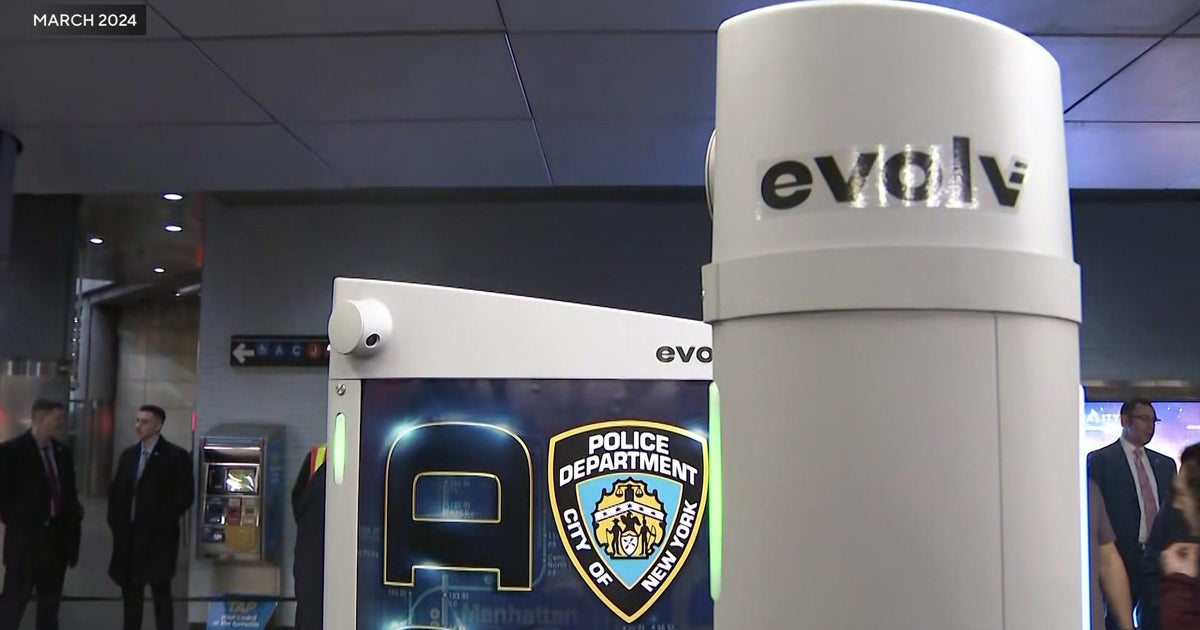Homeless advocates sound off on Mayor Eric Adams' controversial mental health plan
NEW YORK -- Mayor Eric Adams' plan to address mental health in the city is eliciting strong reactions from homeless advocates.
The mayor is now directing first responders and outreach workers to transport people experiencing a mental health crisis to a hospital if they are a danger to themselves or unable to meet their basic needs. Adams insists state law gives him this authority.
"We believe this is the first time that a mayoral administration has given this direction on the basic needs standard and official guidance," Adams said Tuesday.
The city will set up a tele-consult hotline, which first responders can use to a show a clinical expert the person they're dealing with in real time. From there, teams decide whether to bring them in for a full psych eval.
"When that full evaluation happens, the psychiatrist may conclude this is not someone with mental illness, this is somebody who is on drugs. Different issue, isn't part of the mental health law," Dr. Mitchell Katz, president and CEO of NYC Health + Hospitals, said.
Adams says the city has a moral obligation to get them help, but many advocates argue this plan addresses the short-term symptoms of homelessness without treating the root causes.
READ MORE: Mayor Eric Adams says New York City will treat mentally ill, even if they refuse
"The city really needs to address this more from a health and housing lens, rather than focusing on involuntary removals and policing," said Jacquelyn Simone, policy director for the Coalition for the Homeless.
Simone said the mayor should instead be connecting people with permanent housing and make voluntary mental health care more accessible.
"How do you think this plan is going to affect people who are experiencing homelessness in the city?" CBS2's Ali Bauman asked.
"They might be taken to hospitals, but the question remains whether they would actually be able to access care once they are taken to the hospitals. And where will they be discharged to once they're done with the hospitalization or evaluation?" Simone said.
Advocates with Vocal-NY call the mayor's plan draconian, arguing it will push people further into the shadows
"If people know they might be labeled some type of mental health issue, they'll be involuntarily locked up in a mental hospital, things of that nature. They're gonna go deeper underground," Vocal-NY's Milton Perez said.
Jeffrey Berman is a mental health attorney for the Legal Aid Society.
"The people that Mayor Adams is speaking about often get arrested. That's just the reality of it," Berman said.
He added in order to be effective, the state Legislature must end the revolving door of prison.
"Are we going to keep them in jail where they are, again, exposed to violence and drugs? Or are we gonna divert them into meaningful, robust community treatment so that they never, ever get arrested again and so they never have to go to a psychiatric emergency room?" Berman said.
The New York Civil Liberties Union accused the mayor of playing fast and loose with legal rights of New Yorkers, calling his plan a page from the failed Giuliani playbook.
"Acting as if you can sweep a problem out of public view, right, and it will go away. Well, it doesn't go away. It doesn't provide the treatment necessary for long-term solution, and it causes great harm to individuals who are, themselves, hurting quite a bit," Executive Director Donna Lieberman said.
Bauman spoke to Ramel Rich, who has been living on the streets in Greenwich Village for a few months now.
"I'm not mentally ill. I just have big issues," he said. "I feel [the mayor's plan] is bad because a lot of hospitals and agencies aren't for us, they're against us. People who have mental issues, you can't stop that. Hospitals aren't the answers."
Public Advocate Jumaane Williams said he is encouraged by some of the details in the mayor's announcement, but said City Hall needs to provide more information on the implementation and non-police investment parts of the plan.
Meanwhile, the mayor also introduced an 11-point legislative agenda to fill the gaps in mental health laws, and Adams says the program may also be applied to people who are not experiencing homelessness.




